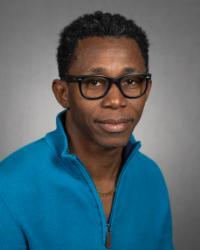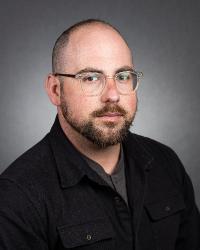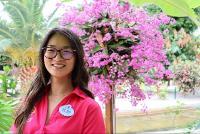Join the Team

If you are interested in working with us, please have a look at the position(s) announced below. If you are living in the Tallahassee/ Quincy area, we are always looking for volunteers to get trained in our lab. If you are in high school, this can count as your volunteer hours required for the Florida Bright Futures Scholarship Program. If interested, please contact xmartini@ufl.edu.
Positions Current Available
Directory
Principal Investigator
| Name and Photo | Biography |
|---|---|
|
Dr. Xavier Martini |
Course taught: ENY 1634 – Seminar class on Chemical Ecology (Spring semester, every even year) Dr. Martini owned his PhD degree at the University of Toulouse France, in 2010. After a postdoc at Texas A&M University, and at the University of Florida. He was hired as an Assistant Professor in horticulture entomology in 2016. His research focuses on providing alternative solutions to conventional insecticides to manage critical horticultural pests. Dr. Martini does not specialize in a specific crop; instead, he takes advantage of the diversity of Florida horticulture to work on a wide range of commodities, including citrus, tomato, cucurbit, avocado, and ornamentals. Consequently, he has published as lead author on various horticultural pests of high economic importance, such as the Asian citrus psyllid, ambrosia beetles, thrips, and whiteflies. This grant aims to organize a research and Extension community around the management of mollusks affecting horticultural crops. This project has led to a statewide assessment need among Extension agents and growers, the organization of an annual meeting on mollusk management, a symposium at the next Entomological society of America and bi-monthly webinars. |
Students
| Name and Photo | Biography |
|---|---|
|
Jessica Griesheimer |
Jessica Griesheimer is a UF College of Agricultural and Life Sciences Dean’s Fellow in Dr. Xavier Martini’s lab at the North Florida Research and Education Center in Quincy, FL and Dr. Alexander Gaffke’s lab at the United States Department of Agriculture: Agricultural Research Service in Tallahassee, FL. She has been with the Martini Lab since 2019 and USDA: ARS since 2020 gaining research skills in chemical ecology, biological control of invasive species, and integrated pest management strategies for natural and agricultural areas. Jessica’s current PhD research focuses on integrating chemical ecology and nanoparticle barriers, such as kaolin clay, to better understand and manage the plant-insect interactions of the pepper weevil, Anthonomus eugenii. The ultimate goal of her PhD is to assist growers in managing pepper weevil infestations with more environmentally sustainable options while decreasing dependence on insecticidal use. Teaching Experience |
|
Abbey Payne Smith |
Abbey is the Commercial & Environmental Horticulture Agent for UF/IFAS Extension in Jackson County. Abbey’s extension program focuses on educational programs and consultations for specialty crop farmers such as fruit and vegetable producers, as well as ornamental, nut and sod growers. She also provides educational programs and workshops for homeowners and commercial landscapers on gardening, lawn, and landscape maintenance. Abbey is also the Jackson County Master Gardener Volunteer Coordinator. Abbey utilizes a wide range of tools for local horticulturists such as teaching educational classes, writing articles for electronic newsletters, and educational videos. She provides consultation services on plant, insect, weed, and disease identification and management, as well as soil and nematode testing and management. Some of her most popular extension programs at the Tri-State Fruit & Vegetable Conference and Garden to Table workshops. Abbey will be starting her Master Thesis in Entomology under the direction of Dr. Xavier Martini in the fall of 2025. She is excited to begin and become an asset to his research and extension programming. |
|
Hellenah Khunga |
Hellenah Khunga is a master’s student in Dr. Xavier Martini’s lab at the North Florida Research & Education Center in Quincy, FL. Her research tailors towards innovative approaches to whitefly management in tomato production. Hellenah’s project explores the effectiveness of the push-pull system by integrating semio-chemicals as repellents, eggplant trap crop as attractants, and reflective mulch as a visual deterrent to disrupt whitefly behavior in the field. Prior to the field work, Hellenah has conducted several greenhouse experiments that evaluated whitefly preferences towards different eggplant varieties to optimize trap cropping. Overall, her work contributes to sustainable pest management through implementation of alternative strategies that minimize synthetic insecticide use while enhancing crop protection. |
|
Kathi Malfa |
I’m Kathi Malfa, a master’s student in the University of Florida Entomology program, working under Dr. Xavier Martini and as a lab manager for Dr. Isaac Esquivel. I joined Martini’s lab in 2017 and began working on my masters in 2023. Over the years, I’ve assisted in research studies for a variety of agricultural pests or beneficial insects, including psyllids, white flies, spider mites, thrips, stink bugs, corn earworms, leaf hoppers, pollinators, predatory insects, and even snails. My current research focuses on the invasive terrestrial Bulimulus bonariensis snails, which are affecting the majority of crops in the southeastern region of the US. These snails are native to South America and have become increasingly problematic since it was first reported in Florida in 2009. It has since spread to more than 26 counties and negatively impacts peanuts, cotton, citrus, and soybeans by contaminating harvested produce and clogging irrigation systems. My research aims to develop sustainable management strategies to control populations of this pest snail by developing a snail trap and evaluating potential attractants or repellents. Our lab is also investigating potential native predators such as other insects or predatory snails, which can help to curb B. bonariensis populations. |
|
Marisa Nodarse
|
Marisa Nodarse is a senior at the University of Florida, where she is an undergraduate. In 2025, she joined Dr. Martini's team at the North Florida Research and Education Center in Quincy, Florida. Under the guidance of PhD student Jessica Griesheimer, she is currently supporting studies that aim to better understand and control the plant/insect interactions of the pepper weevil, Anthonomus eugenii, by integrating chemical ecology and nanoparticle barriers. Her focus will be on reducing the need for insecticides while incorporating eco-friendly pest management solutions. |
Post Docs
| Name and Photo | Biography |
|---|---|
|
Dr. Romain Exilien |
Dr. Romain Exilien is a postdoctoral associate in Dr. Xavier Martini’s Lab at the University of Florida's North Florida Research Education Center. His research is focused on developing comprehensive management strategies for the Asian citrus psyllid (ACP), Diaphorina citri, the insect responsible for transmitting Candidatus Liberibacter asiaticus (CLas), the causal agent of citrus greening disease (Huanglongbing or HLB). Dr. Exilien's work aims to control this pest in various environments, including backyard citrus plantings and organic farms, by integrating physical barriers such as kaolin clay, semio-chemical controls such as repellents, biological methods, and habitat management. He also investigates the cold tolerance of ACP, which is crucial for assessing the potential spread of HLB into colder citrus-growing regions. Beyond his research, Dr. Exilien is dedicated to community engagement, actively educating residents on best management practices to limit the spread of ACP and HLB in residential areas. |
 Dr. John Ternest Postdoctoral Associate jternest@ufl.edu |
Dr. John J. Ternest is a postdoctoral associate in Dr. Xavier Martini’s Lab at the University of Florida's North Florida Research Education Center. His research is focused on evaluating traits in companion plants (marigold and sweet alyssum) to select genotypes that enhance nutritional value and attractiveness to beneficial insects. Additionally, John is studying integrative management of pests for organic cucurbit production. John received his master’s degree at Purdue University focused on integrated pest and pollinator management in commercial watermelon production and his PhD at the University of Florida where he researched pollinator management and pollination in southern highbush blueberry production. John also worked as a postdoctoral research associate in the USDA pollinator health unit prior to joining the Martini lab. His previous work has inspired him to continue researching beneficial insects, specifically at the intersection of ecology and agricultural management. |
Technicians
| Name and Photo | Biography |
|---|---|
|
Dr. Thomson Paris |
Dr. Thomson Paris is the lab manager for Dr. Xavier Martini at the University of Florida’s North Florida Research and Education Center. He is developing rearing protocols for Sarcophaga penicillata, a fly parasitoid of snails, and working to establish stable lab colonies of Bulimulus bonariensis and native Succinea species. His research also includes studying whitefly behavior in response to various clay types and visual cues to inform pest management strategies. In addition to his academic work, Thomson is actively involved in two early-stage startups—XT Scientific and AgroPowder—which aim to translate laboratory research into practical applications for pest control and sustainable agriculture. |
|
Alicia Bradbury
|
|
|
Keith Nicholson |
Keith is one of our technicians who began with us by maintaining field collected laboratory populations of invasive snails and native predatory snails that we are researching to find natural controls for the invasive species. From there he went on to raising blowflies and finding ways to raise them more efficiently. He is currently working on improving conditions in our growth chambers where we are growing vegetable hosts for whiteflies, and he will soon be working with the whiteflies themselves. His background in agriculture gives him the perspective of a grower who has had to deal with the problems we’re trying to solve. |
Alumni
| Name and Photo | Biography |
|---|---|
|
Dr. Austin Fife |
Austin N. Fife, PhD is a research biologist and electron microscopist specializing in the microanatomy and pathology of plant-feeding mites. As a USDA-ARS ORISE Postdoctoral Fellow at the Electron and Confocal Microscopy Unit, where he investigates how mite physiology contributes to the transmission of plant pathogens, leveraging advanced imaging techniques including TEM, SEM, and CLSM. In Dr. Martini's lab, his work has led to the first reports of novel mite-virus-host associations in Florida, including Phyllocoptes fructiphilus and Orchid Fleck Virus, and has been featured in journals such as Viruses, Phytopathology, and Florida Entomologist. His background in acarology and microscopy support his ongoing efforts to design scalable diagnostic tools, including morphological keys, 3D models, and outreach resources for pest management across USDA and academic networks. Current occupation: SDA-ARS Postdoctoral Fellow |
|
Dr. Derrick Conover |
Dr. Derrick Conover studied behavioral and forest entomologist while pursuing his Ph.D. in the Martini lab at the North Florida Research & Education Center in Quincy, FL. Originally hired as a biological scientist for the lab, Dr. Conover participated in research ranging from dung beetle ecology, whitefly management, citrus pest, terrestrial gastropod pests, and pollinators. His graduate research focused on the ecology and chemical ecology of ambrosia beetles responsible for laurel wilt in redbay forest and commercial avocado systems. Collaborating with Professor Xavier Martini and colleagues at UF, Conover has contributed to studies investigating semiochemical‑based “push‑pull” strategies—using attractants and repellents like α‑copaene and verbenone—to reduce ambrosia beetle infestation and disease spread. His applied work also extends to surveys of ambrosia beetle populations in North Florida’s citrus and ornamental tree systems, where he provided practical pest management recommendations for growers. Recognized for public outreach and extension efforts, Derrick has gone on to a position as Extension faculty in agriculture for Columbia County where he bridges fundamental research and real‑world applications to support farmers and producers in North Florida. |
|
Dr. Iris Strzyzewski |
Dr. Iris Strzyzewski graduated from UF North Florida Research and Education Center (NFREC-Quincy) where she completed her M.S. under the supervision of Dr. Joe Funderburk (2017) and her PhD. With Dr. Xavier Martini (2023). Her research primarily involved improving integrated pest management programs for flower thrips in Florida fruit and vegetable systems with a focus on conservation biological control. During her graduate studies, she also served as a biological scientist for Drs. Funderburk (2016-2020), Martini (2020-2022), and Esquivel (2022-2023). Iris is currently the Research Manager for the greenhouses at the Living with the Land attraction at EPCOT, located at Walt Disney World Resort in Florida. Her role includes screening for new plants and growing systems or methods, implementing IPM programs for the over 150 different food crops grown in the unique growing environment at The Land, and continually searching for ways to showcase the world of sustainable agriculture utilizing the most appropriate and impactful methodologies. |
|
Dr. Nicholas Johnston |
Nicholas Johnston joined Dr. Martini’s lab in 2018, where he worked on the development of novel strategies for the control of whiteflies in tomato. His work led to the development of the limonene-scented kaolin, an approach that consists of combining kaolin and limonene in a single tank mix and reducing whitefly to a level comparable to those using conventional insecticides. Upon completing his Doctor of Philosophy in Entomology at UF he was commissioned and attended Officer Development School (ODS) at Naval Station Newport, Rhode Island, from August 2022 to October 2022. After attending ODS, he reported to the Navy Entomology Center of Excellence (NECE), Naval Air Station Jacksonville, Florida where he served as Department Head for Operational Forces Support and Testing and Evaluation. Since March 2025, LT Johnston has reported to the 2D Medical Battalion, where he is currently assigned as the entomology Department Head of the Preventive Medicine Unit. As Department Head, Nicholas coordinates Department of Defense pest management surveillance, site inspections, field training exercise readiness, and pest management during forward-deploying operations in support of the command's mission to provide ready Health Service Support (HSS) to II Marine Expeditionary Forces and enable worldwide mission success. T Johnston has been awarded the Navy and Marine Corps Commendation Medal. |
|
Rowda Altamimi |
Rowda Altamimi obtained her master’s degree in entomology at Dr. Xavier Martini’s lab where she worked on exploring the behavioral interactions of the Asian citrus psyllid Diaphorina citri with fire ants and entomopathogenic fungi. Her work focused on the impact of fire ant presence on host plant choice by D. citri and the response of conspecifics to Cordiceps javanica volatiles. She is currently pursuing her PhD at Dr. Mônica Kersch-Becker’s lab in Penn State University where she is interested in following a chemical ecology approach to exploring the behavioral manipulation of the striped cucumber beetle Acalymma vittatum in the squash system using conspecific volatiles and repellents, in addition to identifying the impact of plant defense diversity on beneficials in a tri-trophic scale. |
| Edward Traczyk Former MS candidate |
|















